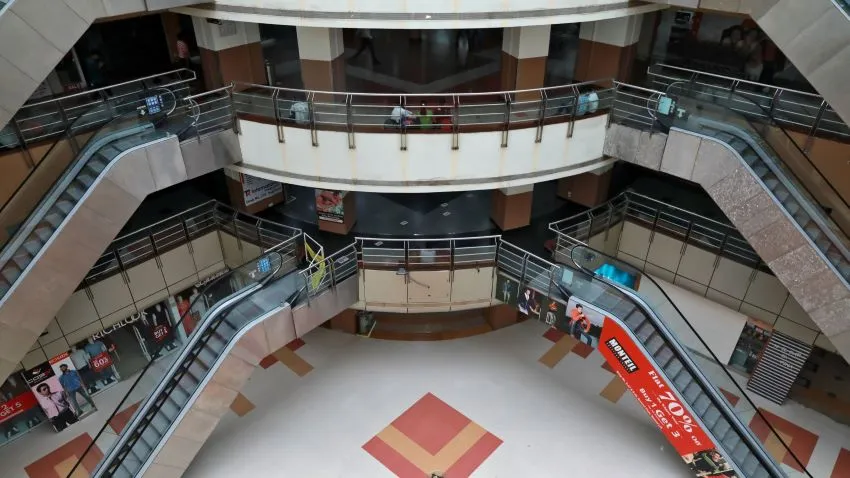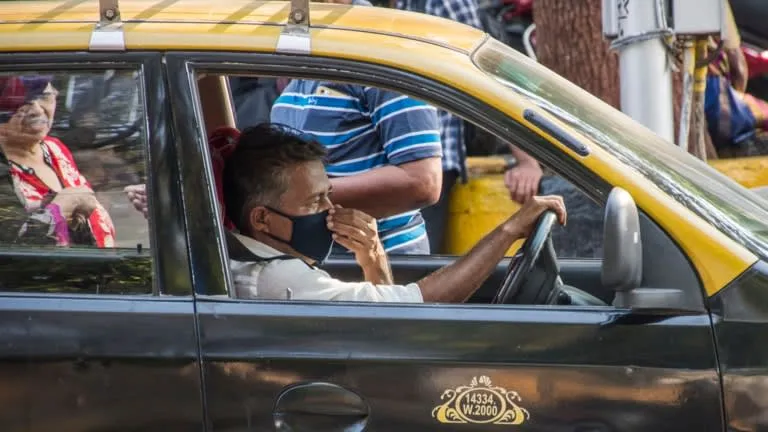
Even before the coronavirus outbreak in India and the government's imposition of the world's largest lockdown, affecting 1.3 billion people, the country's economy was struggling.
India's gross domestic product grew 4.7% in the last three months of 2019, the worst level since 2013. Car and home sales have fallen; private investment is sluggish; and tax shortfalls will further reduce the government's ability to support growth.
And now India has to worry about a public health emergency, made all the more costly by this lockdown that will dampen whatever chance was left for the revival of consumer demand and private investment.
This outbreak and the lockdown will have grave implications for the country's economic growth, and Prime Minister Narendra Modi's government must take urgent measures to free the economy and use its limited financial muscle power prudently.
India's aviation, tourism and hospitality industries had already sustained maximum damage because of the outbreak, but after the lockdown, closing all nonessential businesses and government offices, no sector remains unaffected.
Revenue losses will force businesses to either close down or go for wholesale retrenchment of workers, and the biggest losers will be the workers in the informal sector who comprise more than four-fifths of India's workforce.
Most Indian industries will witness declines in sales. Small and medium sized enterprises in general and debt-laden companies will be more susceptible to defaults on bank loans because of the reduced cash flows caused by mass shutdowns. The service sector, which includes approximately 350 million informal workers like waiters, truck drivers and taxi drivers, will suffer particularly.
 A taxi driver in Mumbai wears a protective mask on Mar. 17: the biggest losers will be informal workers who comprise more than four-fifths of India's workforce. © Hindustan Times/Getty Images
A taxi driver in Mumbai wears a protective mask on Mar. 17: the biggest losers will be informal workers who comprise more than four-fifths of India's workforce. © Hindustan Times/Getty Images Lockdown will ruin the income of shopping malls and bricks-and-mortar shops which pay high rentals to be in these malls and which are already suffering from online competition. Even these online retailers, and the couriers and warehousing companies which service them, are facing problems because of the shortage of delivery people after the lockdown.
Banks will suffer knock-on effects as borrowers postpone repayments or default.
However, with people confined to their homes, video streaming companies such as Disney HotStar, Amazon Prime and Netflix will continue to do brisk business. Telecom giant Reliance Jio, with its multiple offerings in internet data packs, streaming and online retail platforms, should see high demand.
So what should the government do? Given its poor finances -- its fiscal deficit for the year is almost 30% beyond budget -- a prudent combination of financial and nonfinancial measures can help deal with corona-induced economic challenges that are only likely to worsen.
The government should direct its largesse toward industries that have strong connections with other sectors such as automobiles, real estate and telecoms, rather than raw material processors such as steel-makers.
Postponing the implementation of new emission norms for a year will support the struggling automobile and component manufacturing sectors without the need to spend a penny. If the government then cuts the goods and services tax, or GST, it will make up the loss in tax revenue with higher sales once the corona-induced lockdown subsides, and it will give a boost to the struggling automobile sector.
State governments should be encouraged to abolish or substantially reduce stamp duty and registration charges for the next year to boost property development and sales and indirectly help dependent industries such as cement and steel.
But there is one place the government should introduce a tax: a modest GST of 5% on video streaming services. It can use this revenue to reduce GST on other items.
More money for farm income support and rural employment guarantee programs can provide relief to a rural economy suffering from supply glut and near-stagnant demand. Lockdown and transportation restrictions will further decrease demand for farm produce and depress agricultural GDP. Agriculture and allied sectors contribute 15% of India's GDP and employ roughly half its workforce.
Finally, the Modi government can consider reducing income tax rates to increase households' disposable income. This can be funded by temporarily reversing corporate tax cuts for large companies that have not made any big-bang investments. These large companies will feel the benefit of the GST cut anyway.
Modi should not listen to India Inc. and ask the central bank for big cuts in interest rates, which will hurt consumers by earning them less on their savings. Reviving consumer demand should be the way forward in bringing back economic normality once the pandemic is contained.




















